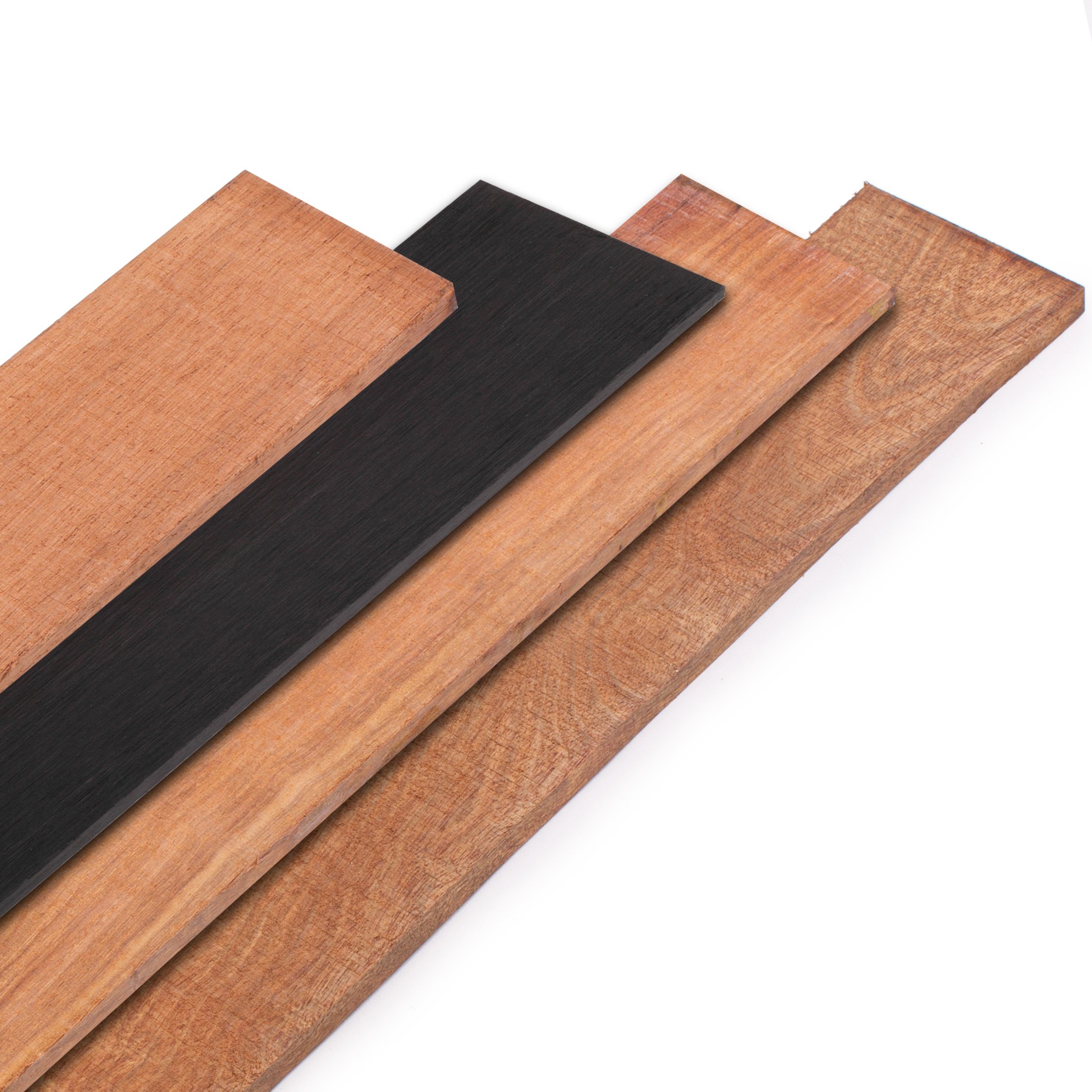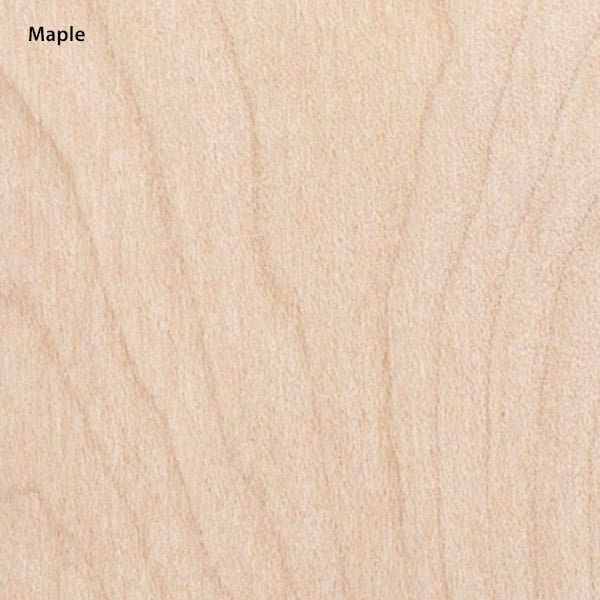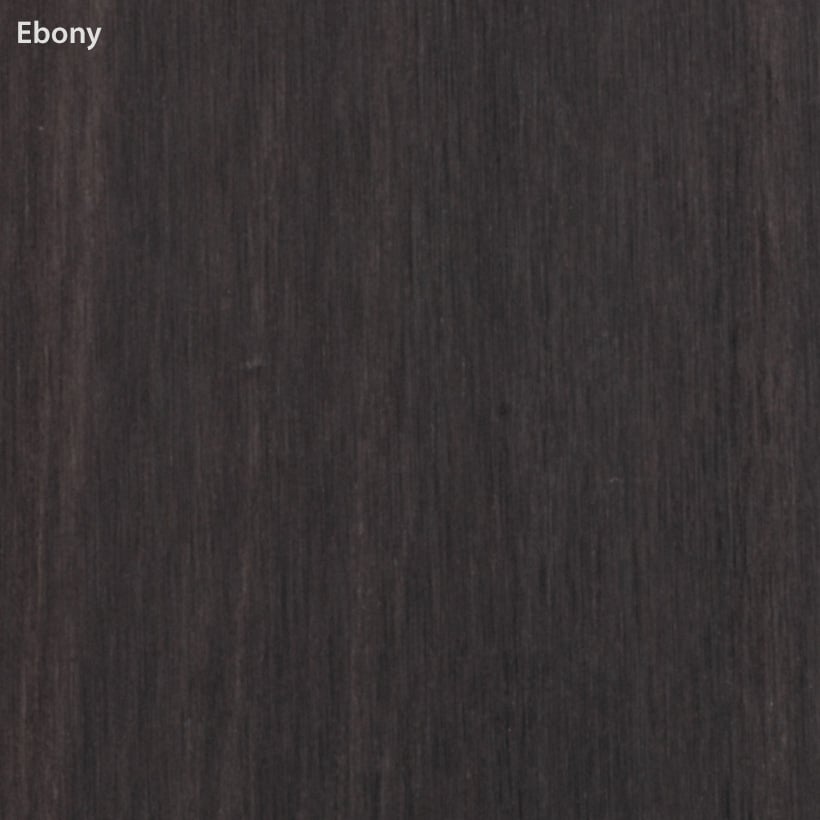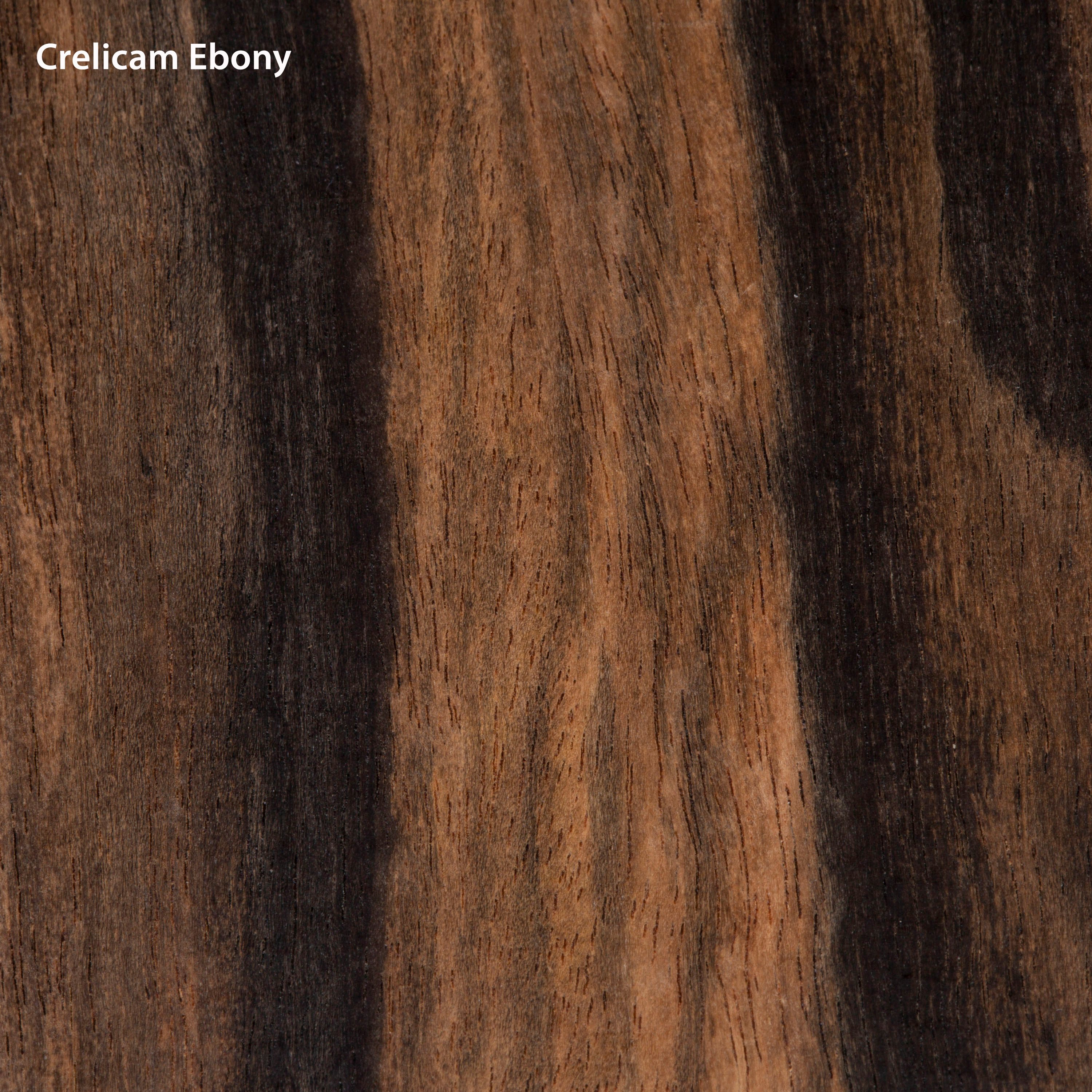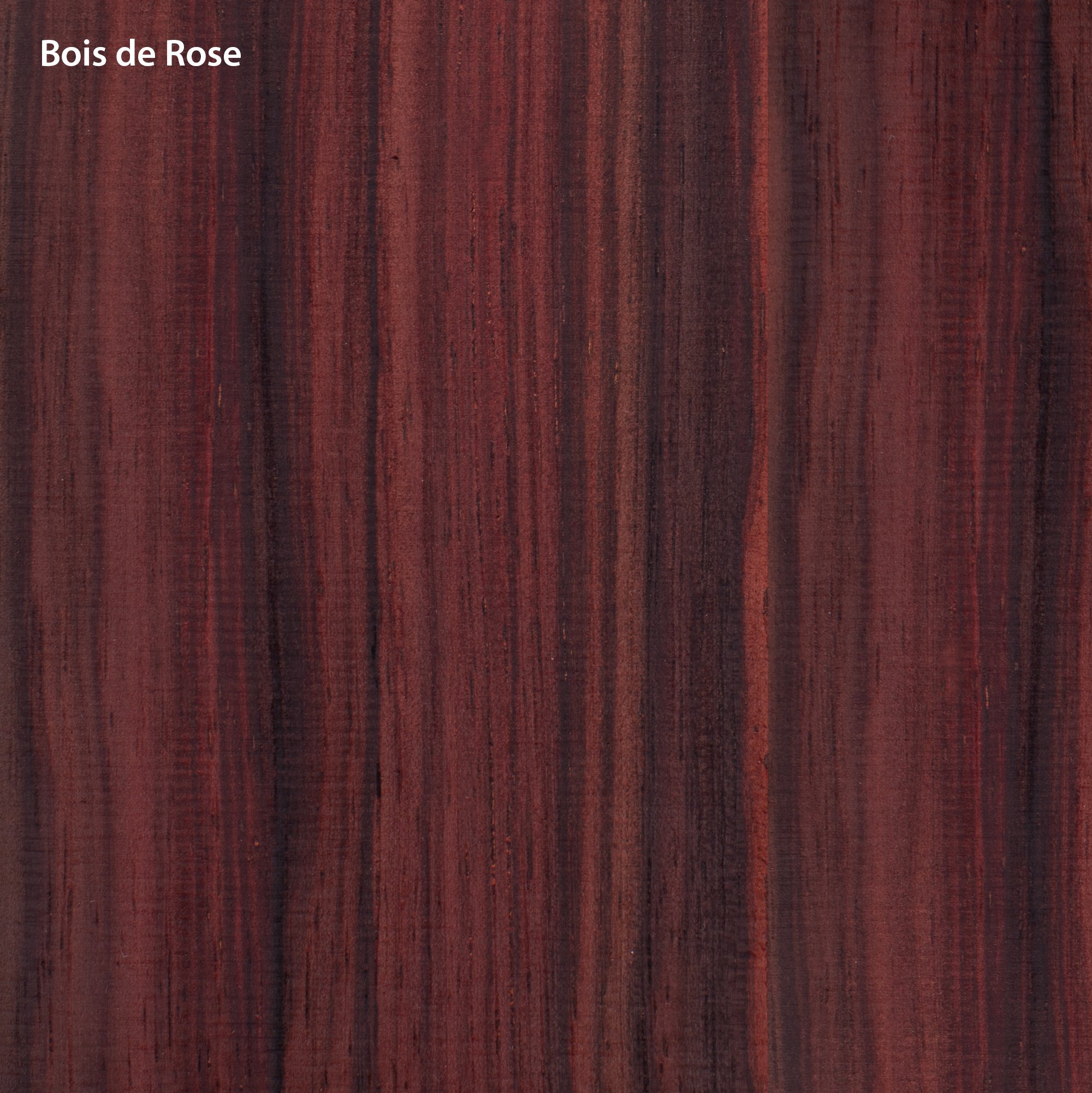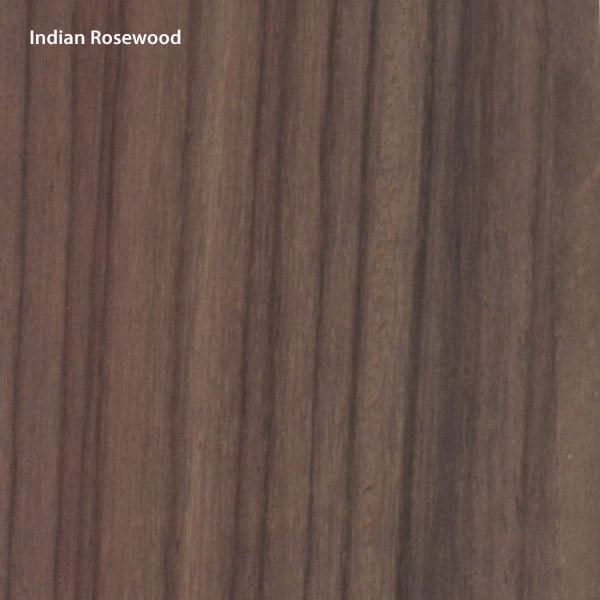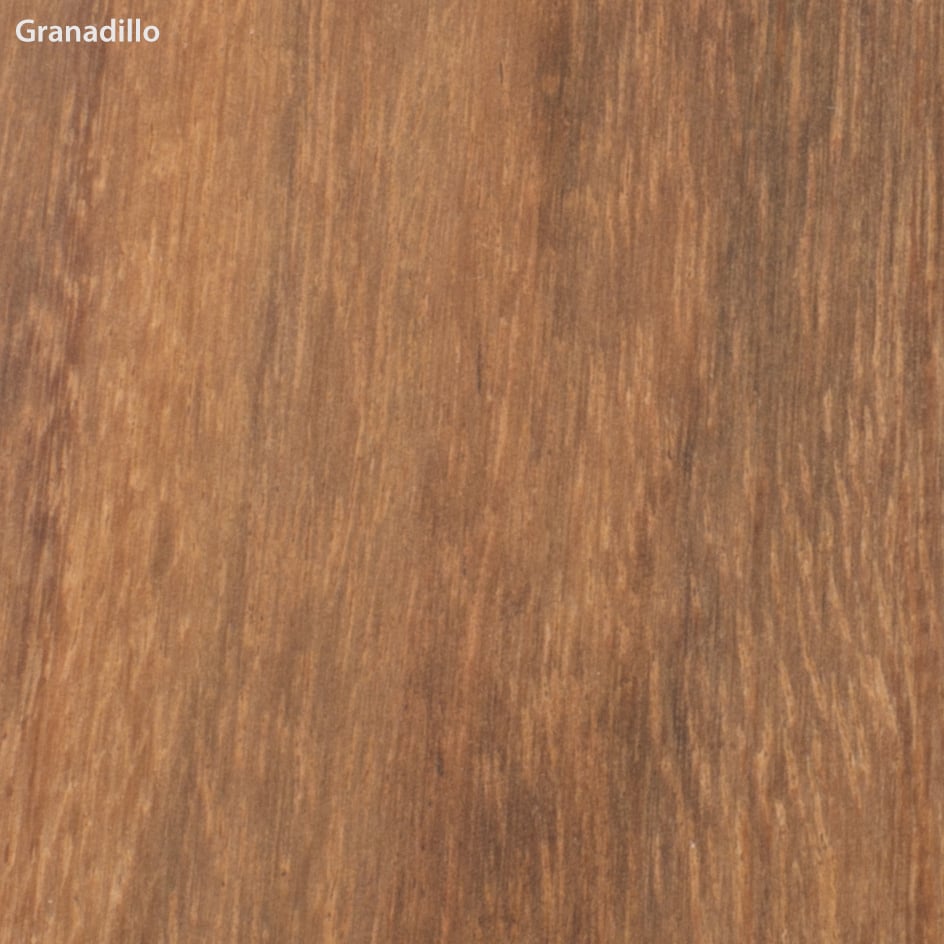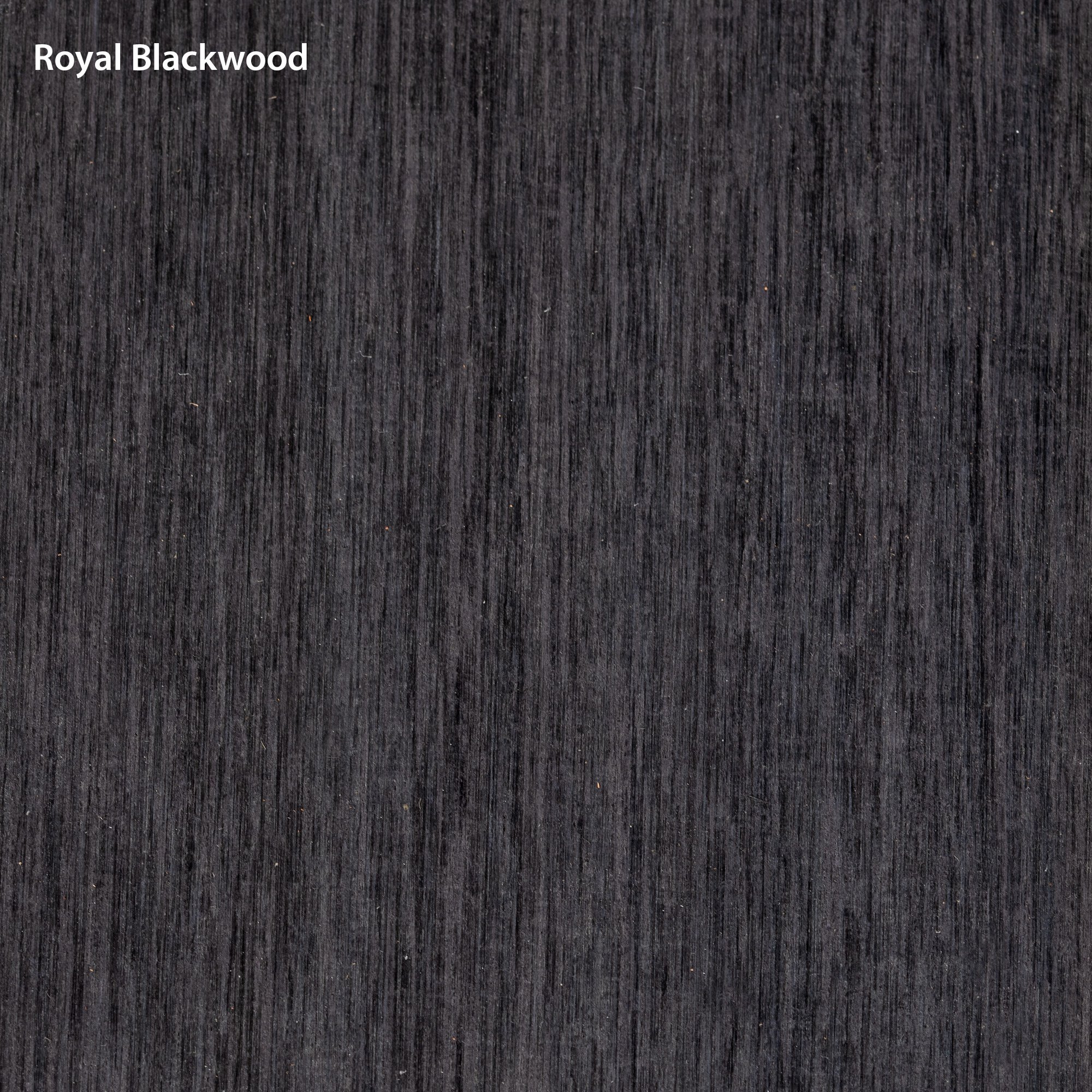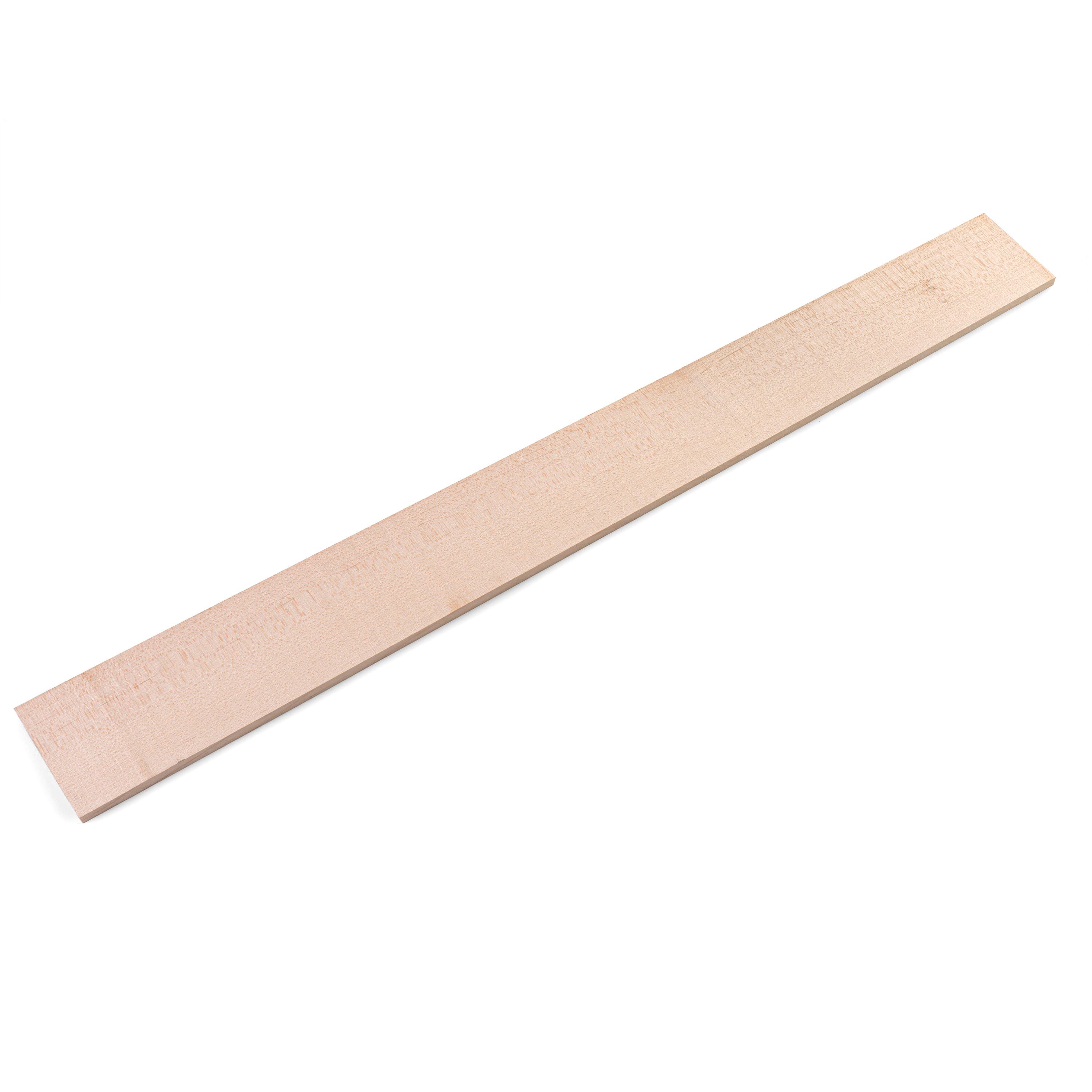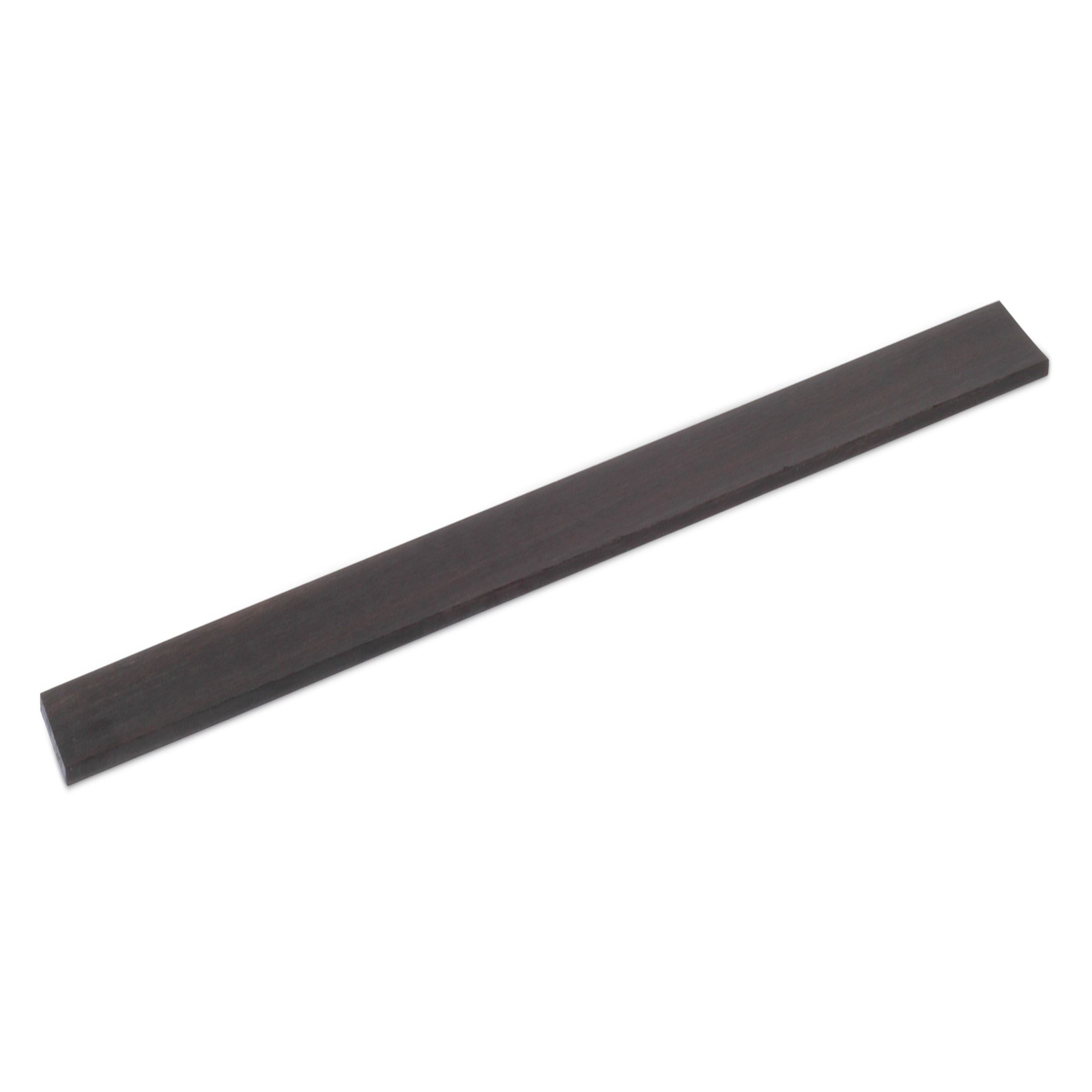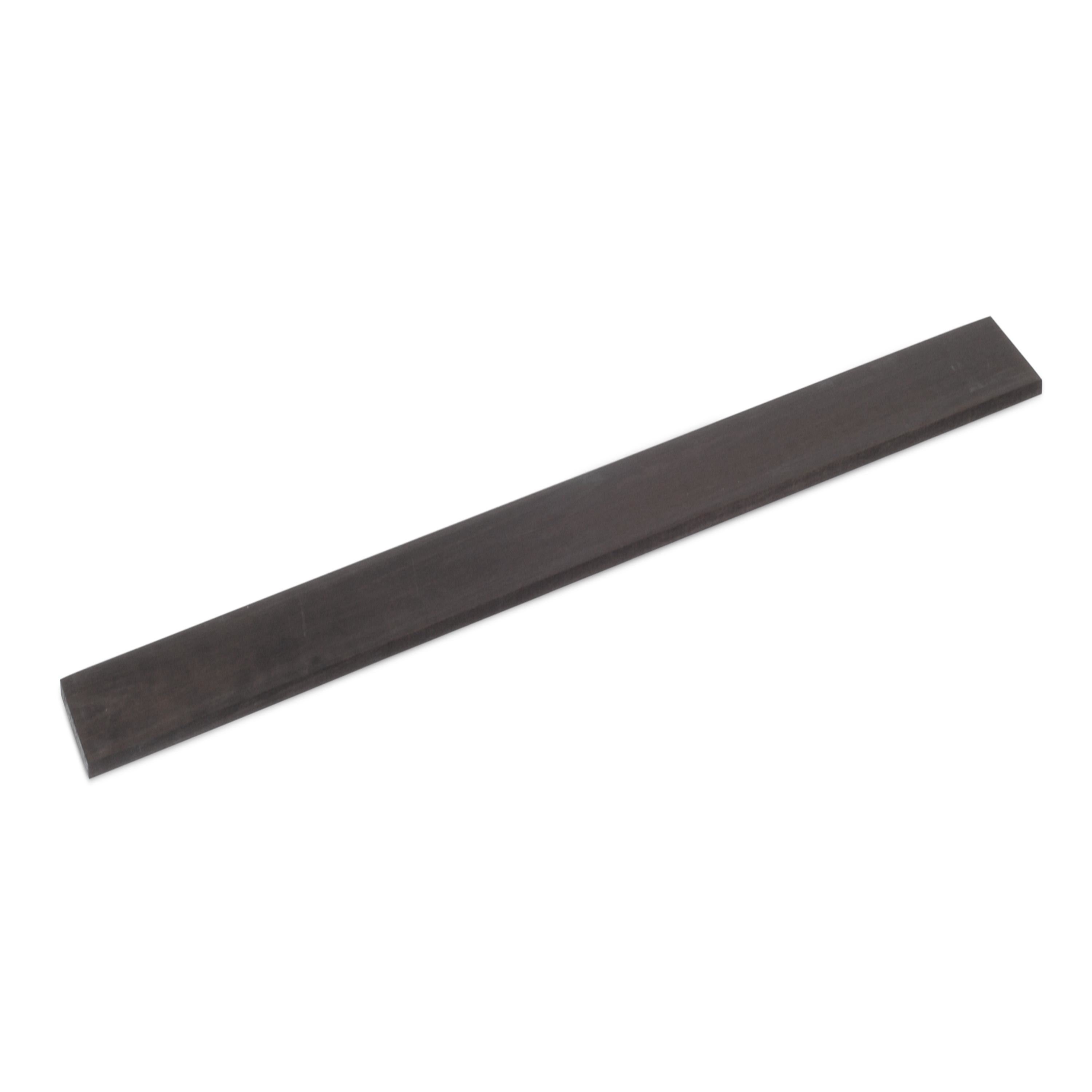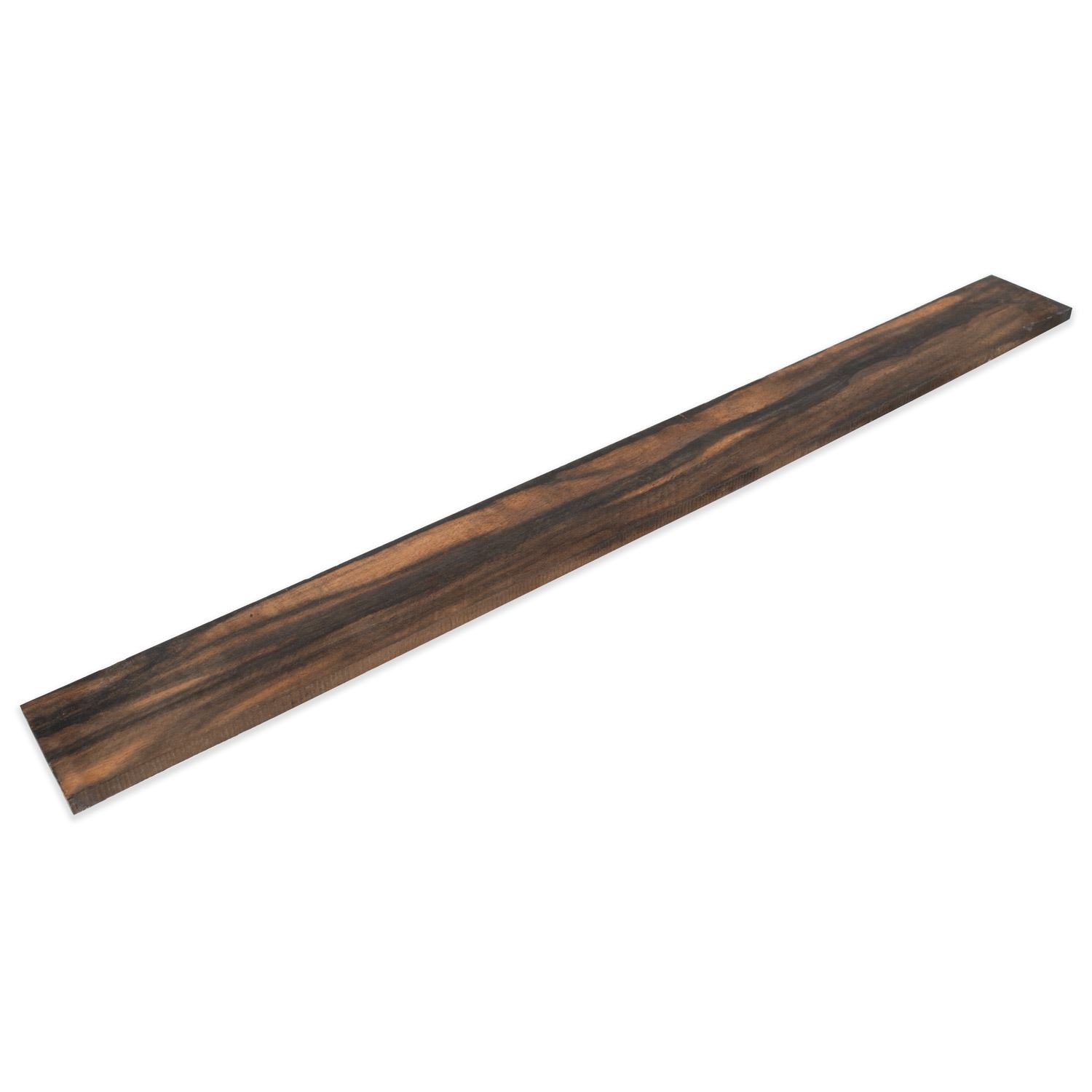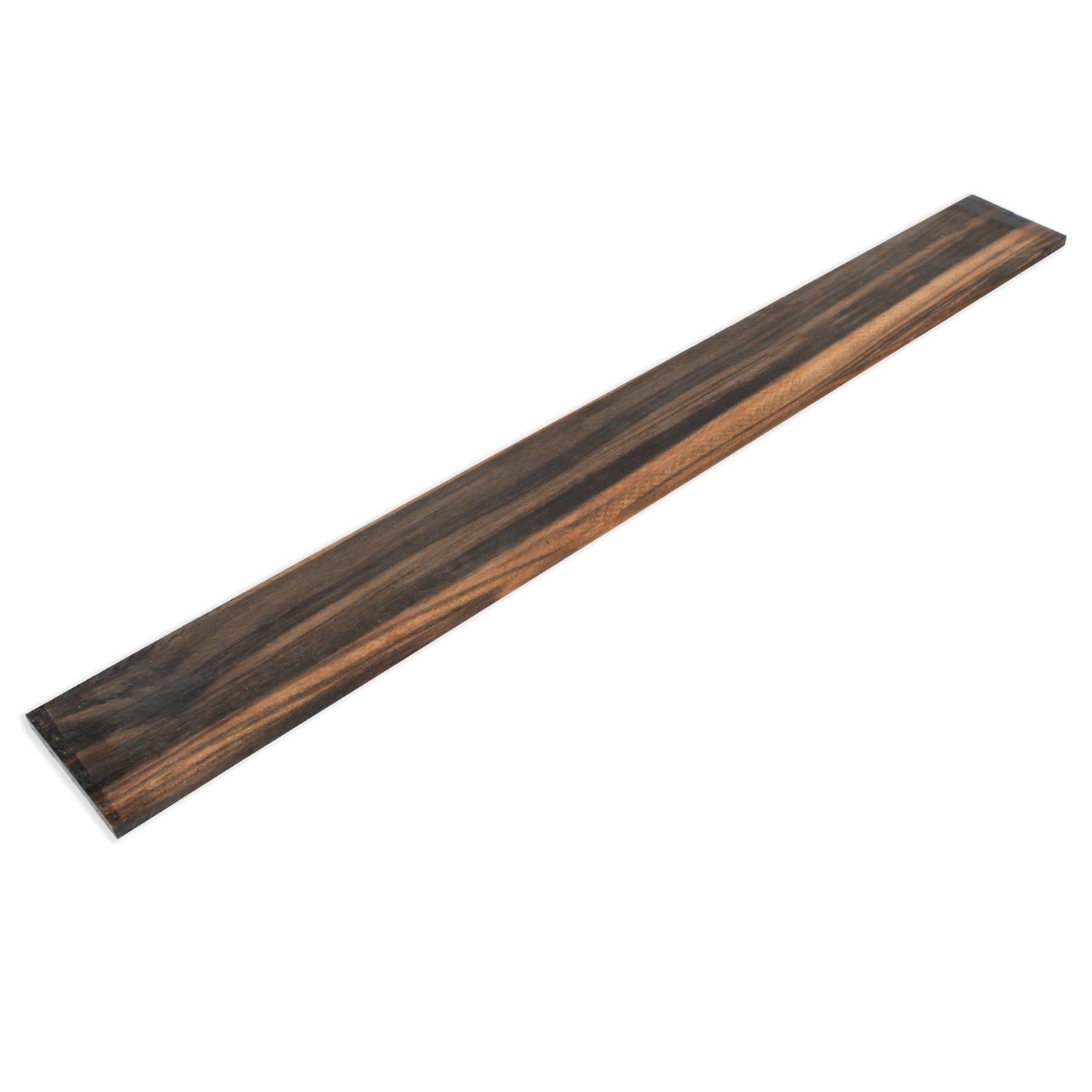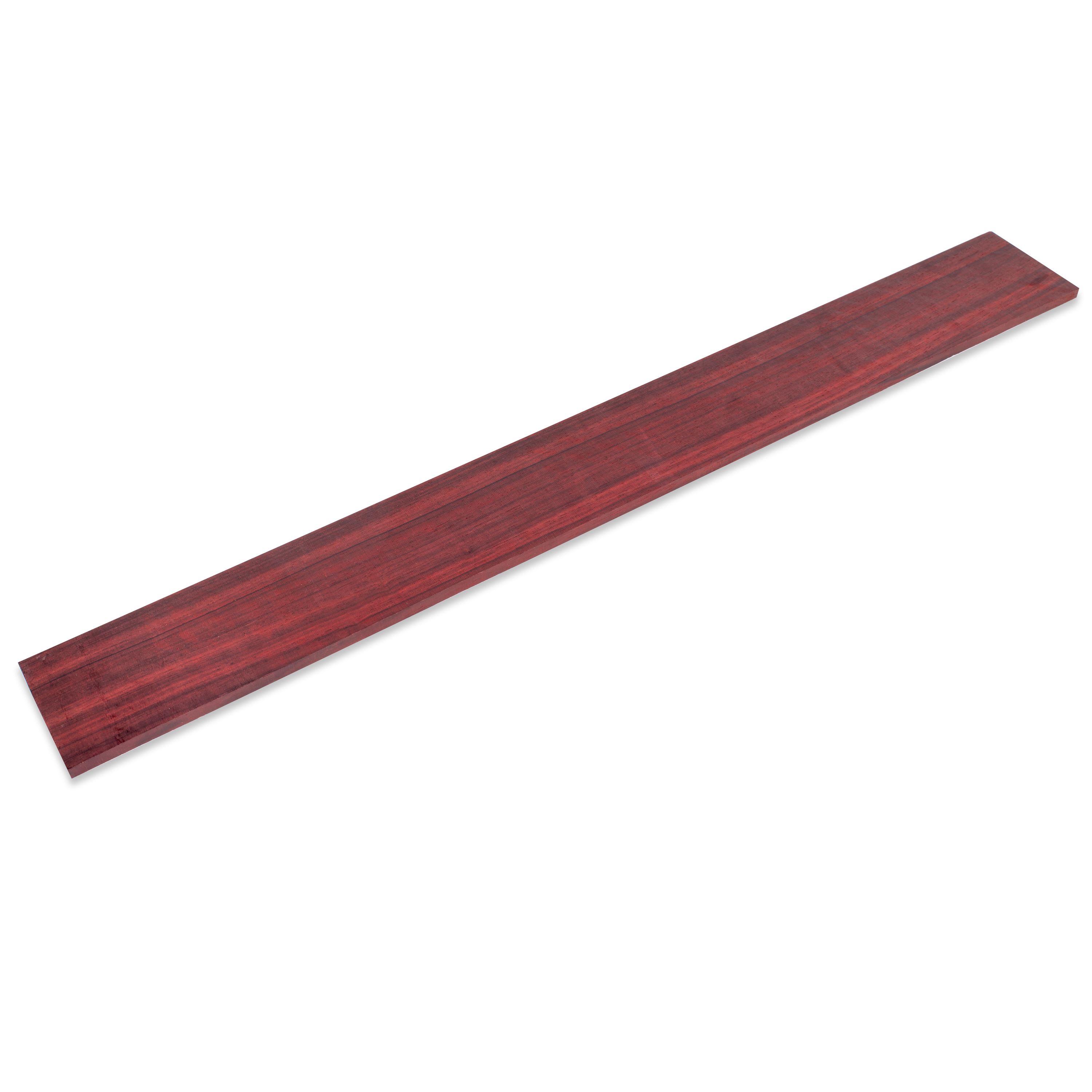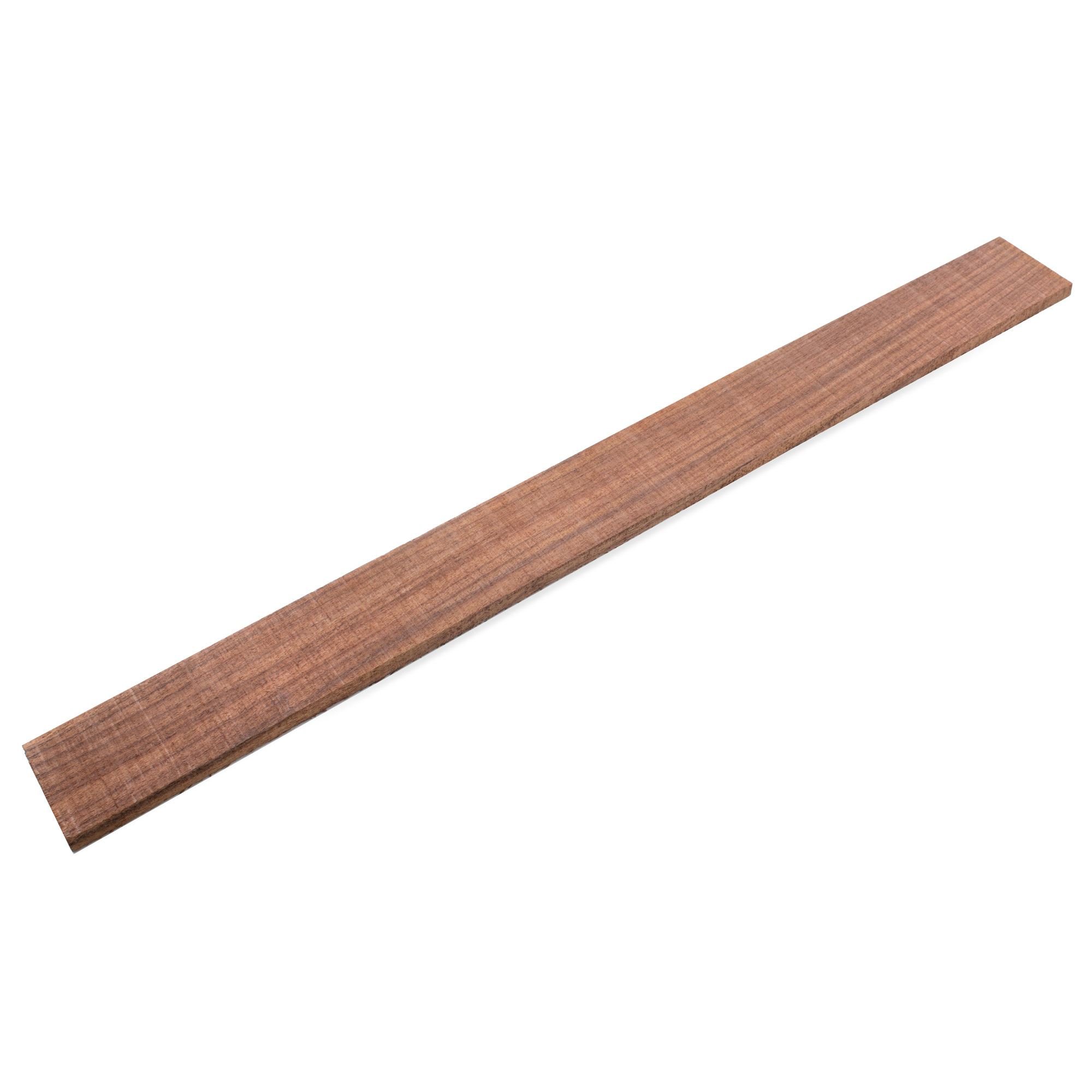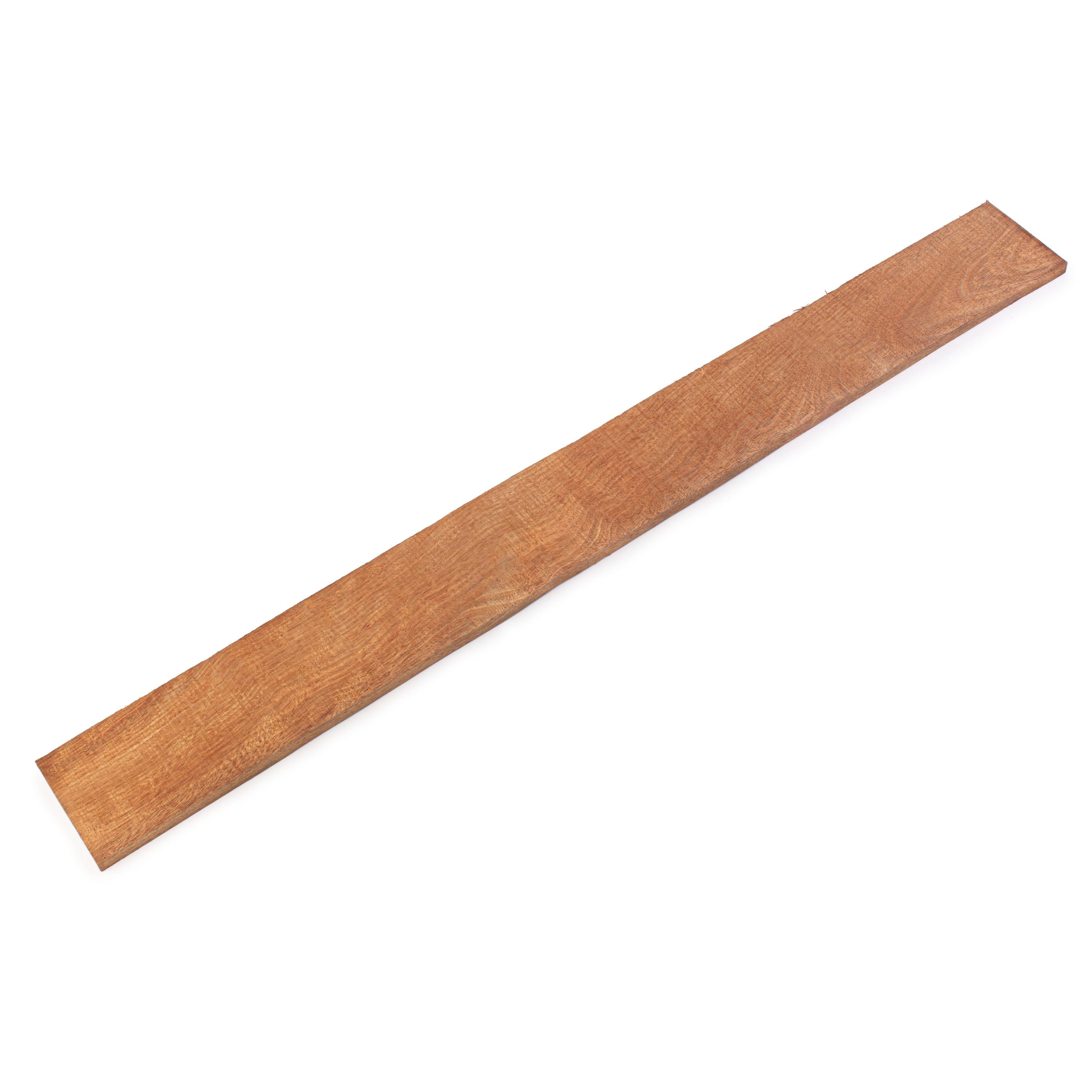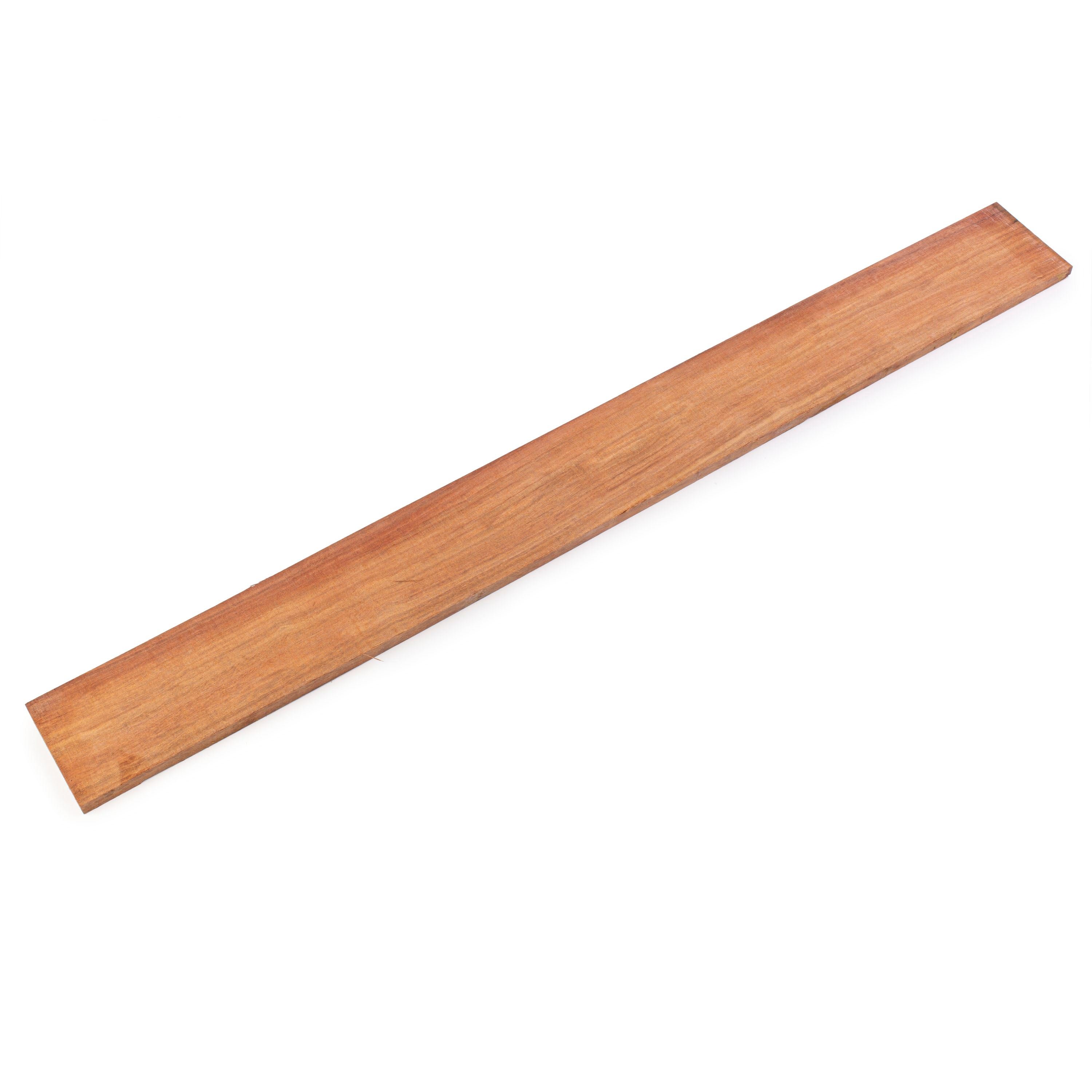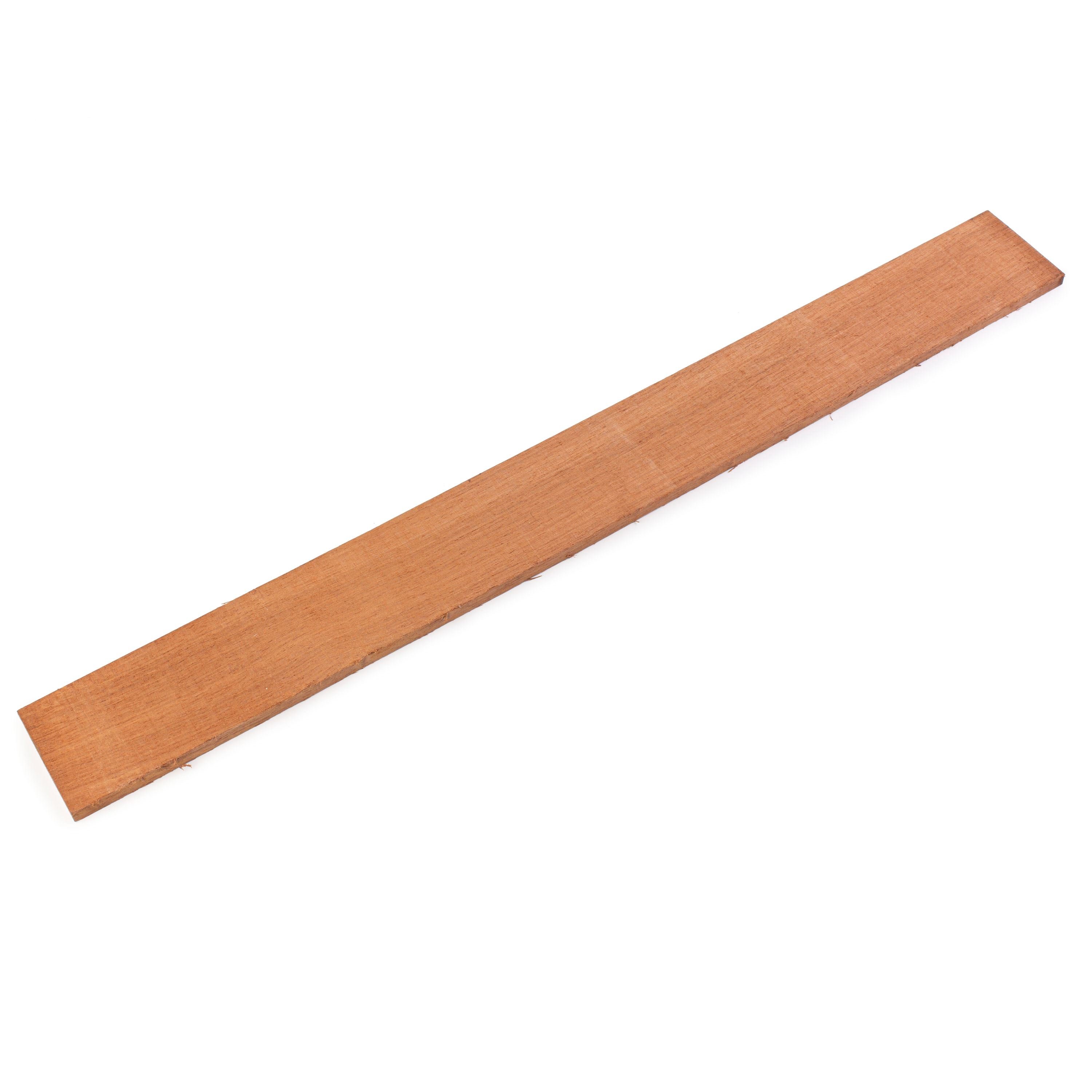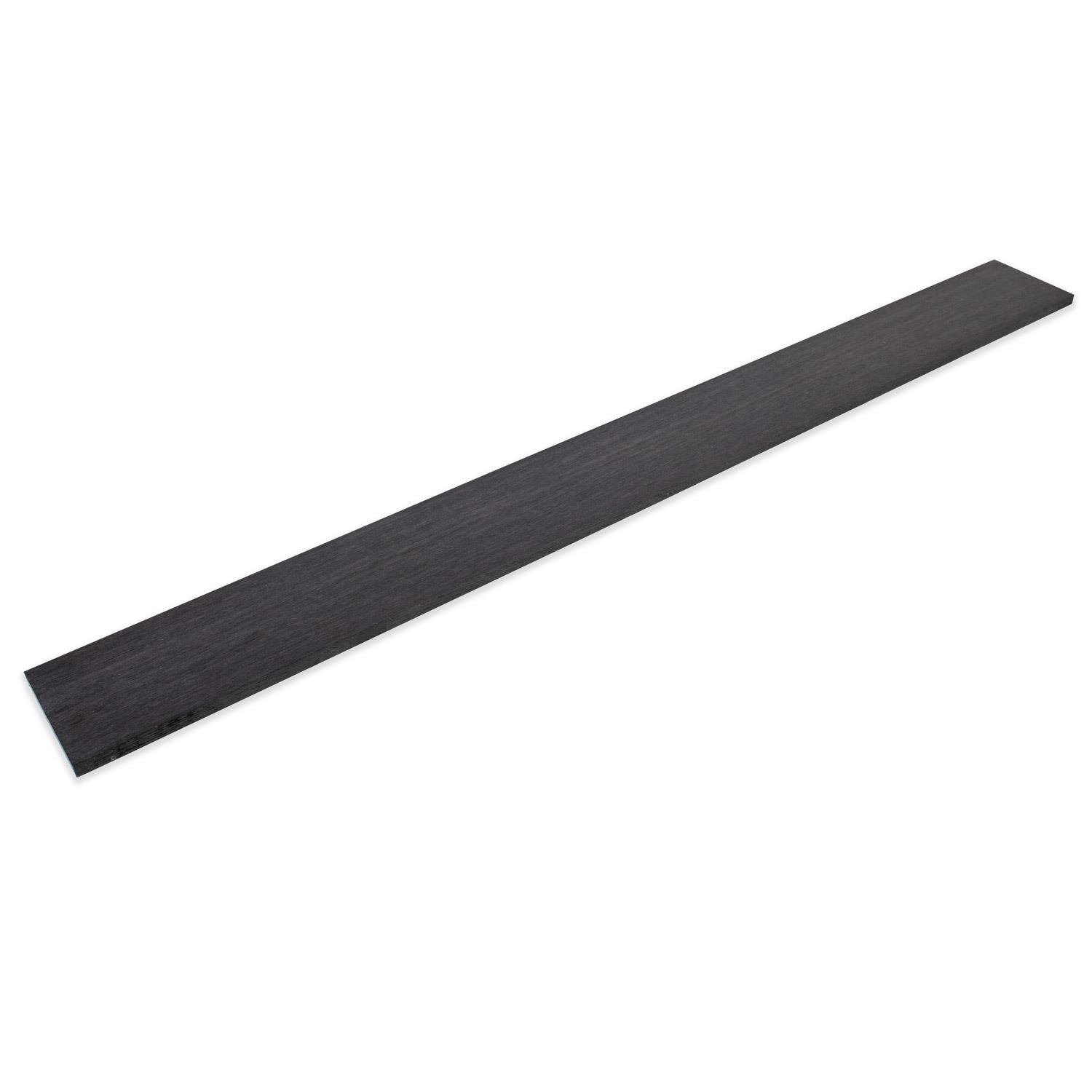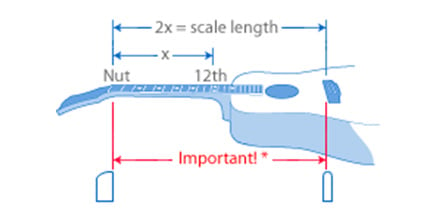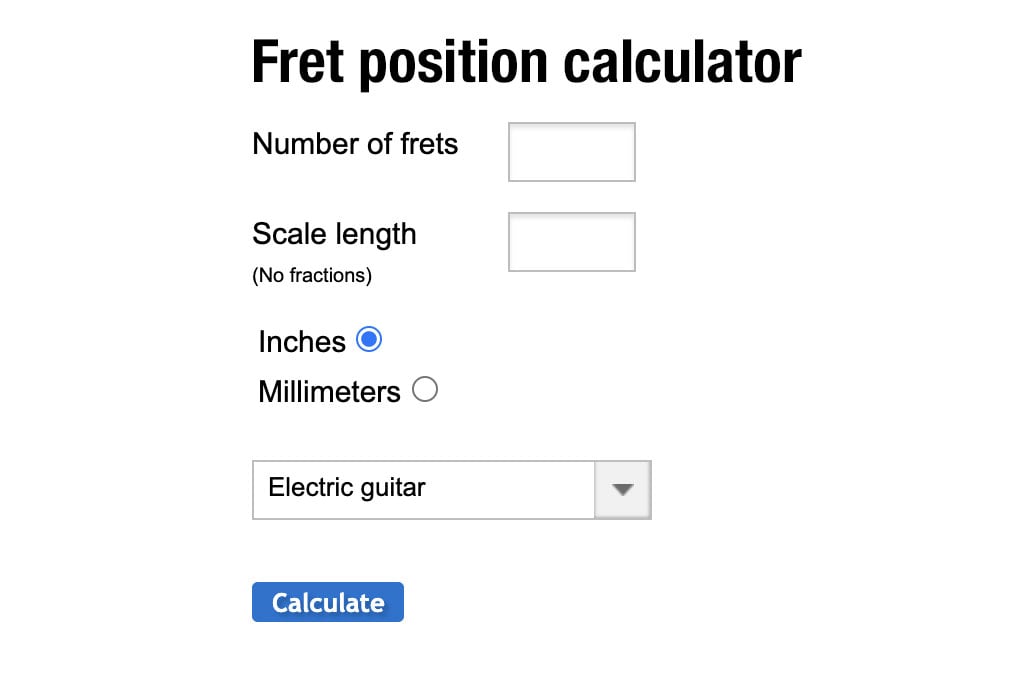Unslotted Fingerboard for Bass
Each top-quality fingerboard is kiln-dried, unradiused, unfretted (no inlays), and ready for final trimming in your shop to fit a variety of neck widths. They're perfect for slotting custom fret scales. Save time and get the perfect board for your neck build.
Each of our fingerboards is stable and ready for use once it's been acclimated to your shop's environment.
Ebony
Our Ebony (Diospyros crassiflora) comes from West Africa and tends to be more uniformly black than we have seen from other sources, however, most African ebony is not perfectly jet black, most boards have some visible grain and occasional streaks of greys and tans. We think these visual variations offer character and enhance the aesthetics of most guitars, but if you desire a perfectly dark, jet black appearance consider using our Black Fingerboard Stain to darken the board and create the desired visual effect.
Crelicam Ebony
StewMac is extremely proud to be one of the only luthier suppliers of Crelicam Ebony (Diospyros crassiflora). This is the same species of ebony that you know and love, but each piece has been hand-selected for its gorgeous looks and exceptional feel. Each fingerboard is unique, the colors range from tans and golds, to blacks, greens and purples with a mix of variegation, light and dark lines, and even some flame. Crelicam Ebony is very hard, super smooth, and holds frets well—you'll make an excellent playing fingerboard with a boutique, one of a kind look.
Bois de Rose
Rich and complex in both tone and color, Bois de Rose (Dalbergia maritima) is a very rare and very special tonewood. While a true rosewood from Madagascar, it is distinct from the more widely known Madagascar Rosewood (Dalbergia baronii). This wood showcases a deep wine-red color that oxidizes to a dark shade of purple, reminiscent of an eggplant. Thanks to our partnership with Madinter in Spain, we can legally source this extraordinary wood for our U.S. customers.
Indian Rosewood, B Grade
This Indian Rosewood (Dalbergia latifolia) is B Grade which has minor imperfections such as small knots, wider grain, and more color streaks compared to our other Indian Rosewood boards. It's a great option to build with and incredibly affordable.
Chechen
Coming from Mexico and Central America, Chechen (Metopium brownei) is sometimes referred to as Caribbean Rosewood. While not a true rosewood, it shares some of the excellent characteristics of high projection and volume. Similar to Pau Ferro, it's a hard, dense, and tight-grained wood that makes an excellent fretboard. Colors range from amber to chocolate brown with a pleasant figure.
Granadillo
Over the last decade Granadillo (Platymiscium yucatanum) has been rising in popularity among European and North American builders. It is an extremely inexpensive, dense, non-porous wood that resists wear, has a strong resonant tap-tone and glues well. Most boards range between sandy and "brick" brown and oxidizes over time to a warm dark brown patina.
Machiche
Another emerging Central American tonewood, Machiche (Lonchocarpus castilloi) compares favorably to Honduran Rosewood. Its excellent tap tone, high density, and easy workability have made it a new favorite for steel string and classical builders. Visually the grainlines are very similar to Honduran Rosewood, with a combination of reds, and light and dark browns. It also glues and finishes with ease.
Royal Blackwood
Royal Blackwood is created by the torrefication of Purpleheart (Peltogyne catingae). This process changes the wood's color to pure black, while keeping its natural grain and workability. Unlike dye, the black color is uniform throughout the piece and does not react to glues, moisture, or solvents. With a density between Ebony and Indian Rosewood it's ideal for fingerboards. Many builders use it in place of Ebony for its remarkably similar color and feel without the export restrictions.
Important:
Ebony is usually not uniformly black. We offer Black Fingerboard Stain, as used by Gibson®, Paul Reed Smith® and other makers for darkening the streaks on ebony fingerboards, bridges and peghead overlays.
Need help calculating your fret locations?
Our online fret scale calculator can calculate any scale length you want to use. It will also give you accurate measurements for locating the bridge on your instrument.
